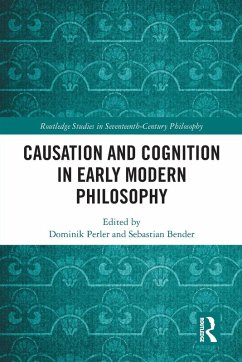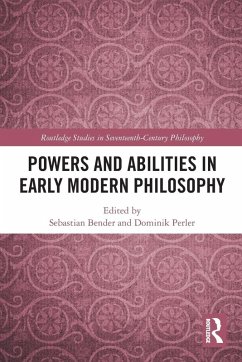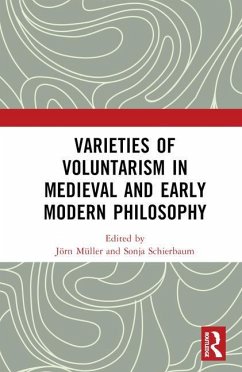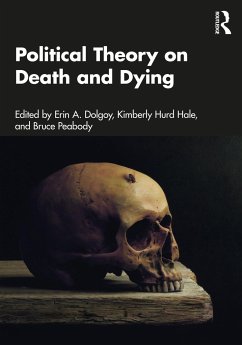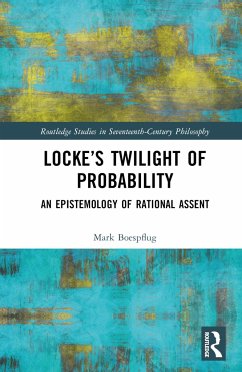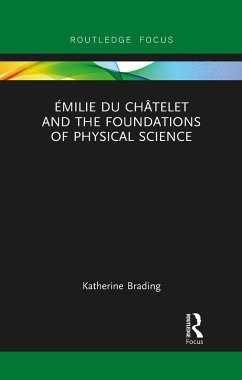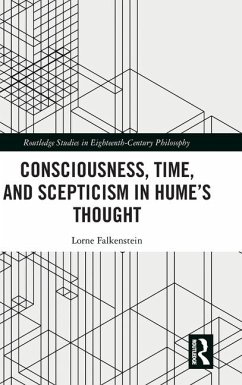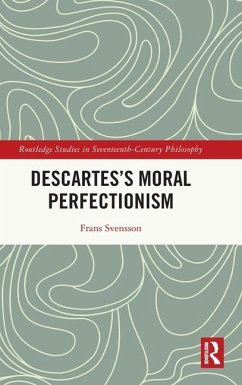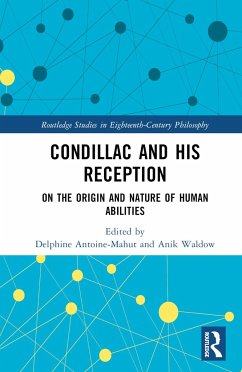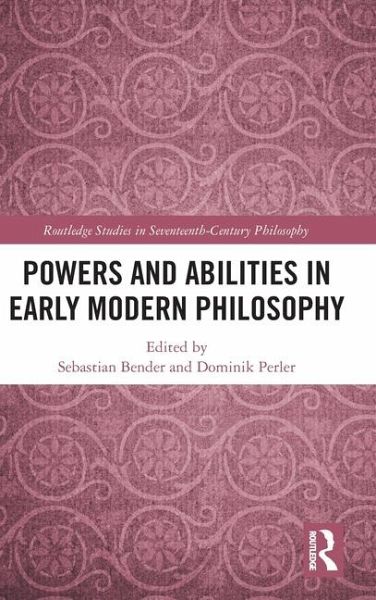
Powers and Abilities in Early Modern Philosophy
Versandkostenfrei!
Versandfertig in 6-10 Tagen
144,99 €
inkl. MwSt.
Weitere Ausgaben:

PAYBACK Punkte
72 °P sammeln!
This book explores different accounts of powers and abilities in early modern philosophy. It analyzes powers and abilities as a package, hopefully enabling us to better understand them both and to see similarities as well as dissimilarities.While some prominent early modern accounts of power have been studied in detail, this volume also covers lesser known thinkers and several early modern women philosophers. The volume also investigates early modern accounts of powers and abilities in a more systematic fashion than has been previously done. By broadening its scope in these ways, the volume un...
This book explores different accounts of powers and abilities in early modern philosophy. It analyzes powers and abilities as a package, hopefully enabling us to better understand them both and to see similarities as well as dissimilarities.
While some prominent early modern accounts of power have been studied in detail, this volume also covers lesser known thinkers and several early modern women philosophers. The volume also investigates early modern accounts of powers and abilities in a more systematic fashion than has been previously done. By broadening its scope in these ways, the volume uncovers trends and tendencies in early modern thinking about powers and abilities that are easy to miss. Chapters in this book explore how 22 early modern thinkers approached the following questions:
What kind of entities are powers and abilities? Are they reducible to something categorical or not?What is the relation between powers and abilities? Is there a fundamental metaphysical difference between them or not?How do we know what powers objects have and what abilities agents have?Are human abilities in any way special? How do they relate to the abilities non human animals have? And how do they relate to the powers of inanimate objects?
Powers and Abilities in Early Modern Philosophy will appeal to scholars and advanced students working in the history of early modern philosophy, in metaphysics, and in the history of science.
While some prominent early modern accounts of power have been studied in detail, this volume also covers lesser known thinkers and several early modern women philosophers. The volume also investigates early modern accounts of powers and abilities in a more systematic fashion than has been previously done. By broadening its scope in these ways, the volume uncovers trends and tendencies in early modern thinking about powers and abilities that are easy to miss. Chapters in this book explore how 22 early modern thinkers approached the following questions:
What kind of entities are powers and abilities? Are they reducible to something categorical or not?What is the relation between powers and abilities? Is there a fundamental metaphysical difference between them or not?How do we know what powers objects have and what abilities agents have?Are human abilities in any way special? How do they relate to the abilities non human animals have? And how do they relate to the powers of inanimate objects?
Powers and Abilities in Early Modern Philosophy will appeal to scholars and advanced students working in the history of early modern philosophy, in metaphysics, and in the history of science.





